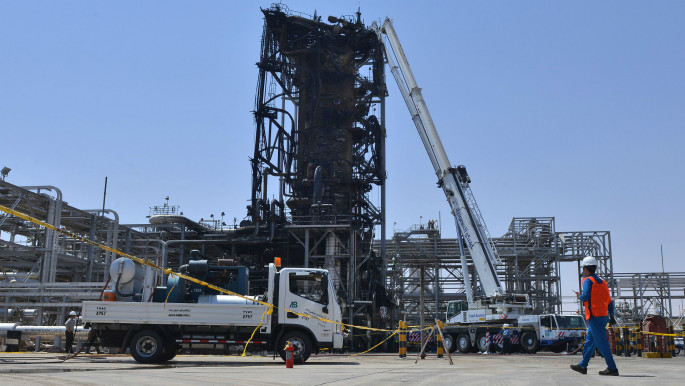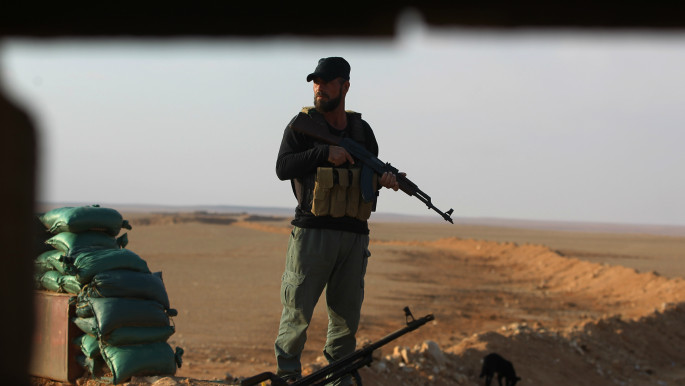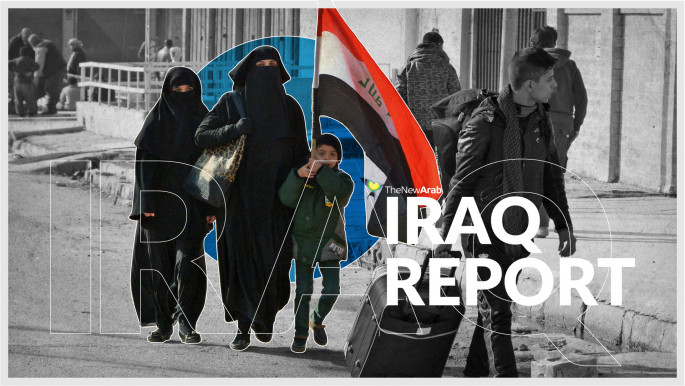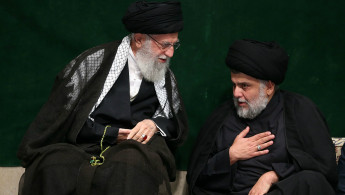The Iraq Report: Saudi Arabia snubbed as Iraq charm offensive backfires
Despite investing millions of dollars in a charm offensive designed to bring Iraqi Shia Arab clerics closer to Riyadh, it seems that Saudi Arabia has once again been snubbed in favour of regional Shia powerhouse Iran.
While the United States has agreed with the official Iraqi assessment that its territory was not used to launch the attacks against Saudi oil giant Aramco's oil facilities, this has been challenged as perhaps the Donald Trump administration's attempt to put Iran firmly in its crosshairs by claiming the attacks were launched from its territory.
Due to the nature of the arms used in the attack and the fact that it is unanimously agreed that it could not have been the Yemeni Houthi militias as originally claimed, eyes are turning northward to pin the source of the strikes on either Iraq or Iran.
Iraq denies links to Saudi Aramco strikes
Iraq has denied that its territory was used to launch the strike last Sunday against Saudi oil giant Aramco's oil facilities in Abqaiq and Khurais.
 |
|
| Read also: Aramco strikes have deep repercussions for Saudi Arabia's economy |
The devastating attack that knocked out half of Saudi Arabia's oil production and crippled the global oil supply by shaving five percent off global production was first claimed by the Iran-backed Houthi Shia militant group in Yemen.
However, Houthi claims of responsibility have been almost universally rubbished by intelligence agencies and experts around the world as a propaganda stunt.
The Houthis have been fighting a protracted conflict against an Arab coalition led by Saudi Arabia seeking to install the internationally recognised government of Yemeni President Abedrabbo Mansour Hadi, and to oust the group from the capital Sanaa.
Iraqi Prime Minister Adil Abdul Mahdi spoke to US Secretary of State Mike Pompeo on the phone on Monday and stressed that Baghdad had not been involved, nor did it have any intelligence that Shia militants linked to Iran's Islamic Revolutionary Guard Corps (IRGC) had conducted any strikes from Iraqi soil.
Abdul Mahdi's office released a statement saying that the Iraqi government's aim was to “prohibit Iraqi territory being used to wage attacks against any neighbouring, brotherly or friendly country.”
The State Department concurred with the Iraqi premier and released a statement saying that US intelligence confirmed that Iraqi territory was not used to launch the attacks and also that the Houthi group were not involved. Instead, Washington has pointed the finger directly at Iran, saying the attacks were launched from its territory.
Tehran has vehemently denied Washington's allegations and claimed that the claims were designed to push the region closer to war.
While it is highly plausible that Iran was in some way behind the strikes, it is highly unlikely that the attacks came directly from Iranian territory.
All indications about Iran's actions and strategic decision-making over more than 16 years since it gained greater prominence in the Middle East following the collapse of the Saddam Hussein regime in 2003 suggest that Tehran is a highly savvy and wily player on the regional and international scene.
Rather than directly attacking American, Israeli and other Arab interests, Iran has employed its vast network of IRGC-managed proxies to launch attacks across the region, included directly contributing to the deaths of American soldiers during the US occupation of Iraq. The Shia theocracy keeps a degree of separation as it controls militant proxies in Iraq, Syria, Yemen and Lebanon.
 |
Iran does not stand to benefit from launching direct strikes against Saudi Arabia or anyone else from its own territory and using its own military forces |  |
Iran does not stand to benefit from launching direct strikes against Saudi Arabia or anyone else from its own territory and using its own military forces.
Instead, it is highly plausible that it would do what it has done for many years now, and that is to transfer arms and expertise to its proxies across the region and allow them to operate on Tehran's behalf.
Indeed, there are already accusations that Iran has done this before, as Iraqi Shia militants operating in southern Iraq near Basra were blamed for launching strikes against Saudi Arabia's East-West oil pipeline in June.
It is therefore not beyond the realm of possibilities that Iran relied on its Shia Islamist proxies in Iraq to launch this latest attack on Aramco's facilities.
Riyadh itself on Wednesday confirmed that Iran was behind the strikes but fell short of directly accusing Iran of using its own territory to launch the attacks, saying only that the strikes came from the “north” of Abqaiq.
Saudi charm offensive in Iraq fails
As part of its strategy to weaken Iran's influence in the Middle East and to lessen the degree to which Saudi Arabia is surrounded by Iranian proxies and allies, Riyadh has been attempting to make inroads with Iraq's Shia Arab leaders since 2017.
By appealing to their ethnic identity rather than their religious sect, Saudi leaders hoped to be able to convince Shia Arab leaders to come to Riyadh's side and to abandon – or at least be less in the orbit of – Tehran.
 |
|
| Read also: The Iraq Report: Shia militias look into air defences against Israel |
Saudi's Crown Prince Mohammed bin Salman, better known as MbS, invited Iraqi Shia leader and controversial cleric Moqtada al-Sadr to visit his lavish palaces despite Sadr's chequered past in leading the Mahdi Army, one of the most infamous militias to operate sectarian death squads.
The two were photographed together in 2017, and MbS pledged to support the Arab cleric.
A month after Sadr's visit, MbS ordered the opening of two new consulates in Iraq, one in the port city of Basra and the other in the Shia holy shrine city of Najaf. Both cities are dominated by the Shia demographic and are also under the sway of powerful clerics, many of whom are close to Iran.
Earlier this year in April, Riyadh reopened its consulate in Baghdad after an absence of more than three decades, and pledged a one billion dollar aid package to Iraq.
Apart from this recent aid package, Saudi Arabia has pumped hundreds of millions into projects over the years designed to entice Shia Arab leaders who expressed even the remotest of anti-Iran sentiment.
Before and during the Iraqi election campaign of 2018, Sadr made several statements that appeared at face value to be against any Iranian interference in the country. He gave several speeches saying that he would not tolerate any interference from either Iran, the United States or any other actor in Iraq's internal affairs.
However, Saudi policymakers have been left with egg on their faces after Sadr answered a summons by Iranian Supreme Leader Ali Khamenei to attend religious ceremonies in Tehran. Sadr was photographed with Khamenei as well as other senior figures including IRGC Qods Force commander Qassem Soleimani.
Soleimani holds a fearsome reputation across the region as being the mastermind controlling all of Iran's proxies across the Middle East. His IRGC unit was also directly linked to the arming and training of Sadr's Mahdi Army and later recruits to his newer militia, Saraya al-Salam.
This has raised questions about the efficacy of Saudi Arabia's outreach strategy to Iraqi Shia political and militant leaders. It is clear that they feel less of a connection with their Arab ethnic background than they do to their politico-religious links to their coreligionists and backers who walk the halls of power in Tehran.
With Iraqi Shia militias having conducted strikes against Saudi targets in June this year, according to American intelligence, and with the same groups potentially being involved again in these latest strikes against Aramco, it could be a case that these militants benefited from Saudi money while pretending to come closer to Riyadh.
In reality, they maintained their ties and loyalties to Tehran and have now categorically snubbed Saudi's charm offensive.
The Iraq Report is a fortnightly feature at The New Arab.
Click below to see the full archive.
 |



